Choosing your CMS is a big decision when building your website. In this ‘Drupal vs WordPress’ comparison, we get straight to the point. We’re examining key factors such as user-friendliness, security, and community support to help you determine which platform best suits your digital strategy. Read on for a no-nonsense guide to help you choose your CMS.
- Drupal and WordPress are both popular content management systems (CMS platforms) with strengths. Drupal is known for its security and advanced features for complex sites, while WordPress is user-friendly, has a huge plugin ecosystem, and has a larger market share.
- Security is a big feature, and Drupal tends to win because of its built-in security and granular control. WordPress users must be vigilant with plugin management and updates to keep their site safe.
- The choice between Drupal and WordPress should be based on project requirements, desired customization, the user’s technical skill, and long-term goals. Drupal is ideal for complex, custom projects, while WordPress is suitable for a broader range of websites.

What are Drupal and WordPress
Both Drupal and WordPress are known for their strengths. They are the foundation of millions of Drupal and WordPress sites worldwide. While they share the same web standards and infrastructure requirements, choosing between them often depends on project requirements and the user’s technical skills.
Building a web presence requires both new developers and seasoned professionals to understand Drupal and WordPress.
Drupal History
From 2001 to the present, Drupal has evolved into a comprehensive CMS, powering complex sites and sought after by media and publishing giants for its advanced content management features. Drupal 10, introduced in 2022, ushered in a new era with the Olivero theme and a Symfony 6.2 foundation, setting a new standard for security and features.
The evolution of Drupal, driven by a community, demonstrates that it’s a platform for creating digital experiences. The adoption of the Drupal CMS by notable websites such as:
- The White House
- NASA
- Harvard University
- The Economist
- Tesla backs this.
WordPress: From Blog to Complex Web Development
WordPress’s journey from a blogging platform to the WordPress CMS is proof of its versatility and appeal to many. Its evolution has been marked by significant milestones, such as custom post types and REST API integration, which have made it possible to build more complex sites and web applications.
With the Gutenberg editor and a vast plugin ecosystem, WordPress offers a user-friendly interface that enables both beginners and experienced WordPress developers to build web projects efficiently.
Drupal vs WordPress: Market Share

A look at the market share numbers reveals a great deal about the popularity of Drupal and WordPress in the CMS space. WordPress is the most popular content management system, powering over 455 million sites. Drupal is ranked 6th and has a downward trend from its peak, with 1.2% of sites using a known CMS.
The significant difference in CMS space market share highlights the widespread adoption of WordPress and the niche yet substantial presence of Drupal.
Popularity Contest: User Base and Community
A CMS’s popularity is often reflected by its user base and community. WordPress boasts a vast community that offers numerous resources and support, making it an excellent option for users at all levels. The community also offers extensive web design resources, including tutorials and forums, helping users learn and improve their web design skills. With global meetups and conferences, the WordPress community is a hub of ideas and innovation, which is why it has become so popular.
Drupal’s community may be smaller, but it’s deep on quality and security; it’s a solid foundation for those who choose Drupal.
Who’s using what?
The list of big names that use Drupal and WordPress shows their versatility. Drupal is the CMS of choice for sectors that require high security and customisation, such as governments, educational institutions, and healthcare organisations. Many websites built with Drupal are complex, large-scale, or require advanced security features, making Drupal websites especially popular among organisations with strict requirements. Its content management capabilities make it suitable for many industries, from entertainment to e-commerce.
With its user-friendly nature, WordPress powers a diverse range of sites, including big publishers, large companies, and artist websites, proving it can handle a wide array of digital needs.
Ease of Use: Drupal vs WordPress
When comparing WordPress to other content management systems, the debate centres on the balance between customizability and accessibility. With its user-friendly interface, WordPress is designed for users with no technical skills to build many sites. Its simplicity and quick installation process are for everyone, even those who want to bring their site to life quickly.
While it’s a robust platform for complex site development, Drupal has a steeper learning curve, making it unsuitable for casual content creators. Choosing the proper CMS depends on your skill level and the specific requirements of your project.
Getting Started with Drupal
Starting a Drupal project requires knowledge of web development languages and familiarity with its massive module library. Drupal calls its extensions “modules,” which is different from WordPress, where plugins provide similar functionality. Creating complex content types and taxonomies in Drupal can be a steep learning curve, especially for newbies who have just installed it.
Moreover, customising a Drupal site’s look goes beyond aesthetics; it requires mastery of its templating engine and knowledge of CSS. When launching a website built using Drupal, sourcing a team of Drupal Developers could be required.
Installing WordPress
Unlike Drupal, WordPress’s simplicity and speed of installation make it the choice of many website owners. This simplicity is the key to WordPress’s success, enabling users from diverse backgrounds to install WordPress and establish their online presence immediately.
Its user-friendly nature has contributed to its popularity, and a large support community has encouraged creators to bring their ideas to life. Additionally, having a skilled WordPress developer can help users maximise the platform’s potential by ensuring the site is set up and customised effectively.
Extensibility through Plugins and Modules

Different web projects have different requirements, so we must extend a CMS’s capabilities. WordPress boasts a vast plugin ecosystem, featuring over 55,000 free plugins and thousands of premium, third-party plugins available on CodeCanyon. Both WordPress and Drupal support a wide range of third-party extensions, which allow users to add new features and customise their sites. However, relying on third-party extensions can also introduce security vulnerabilities; therefore, it is essential to choose reputable plugins and keep them up to date. By updating the WordPress core, users can ensure their site is stable and secure.
While Drupal has fewer modules, it still boasts a vast library of over 40,000 to choose from, which reflects the flexibility and activity of the Drupal community in developing and maintaining these modules.
WordPress Plugins Variety and Volume
WordPress’s plugin repository has many functionalities:
- Website building with Elementor
- Security with WordFence
- SEO with Yoast
- E-commerce
- Social media integration
- Site speed
- Access to premium plugins for advanced features and dedicated support
This variety allows WordPress users to customise their site according to their needs, all with a few plugins.
The Modular World of Drupal
Drupal’s modular nature allows for deep customisation, especially for sites that require complex data organisation and advanced development features. Modules like SEO Tools offer advanced SEO tools, keyword management, and Google Analytics integration, enabling users to enhance their search engine visibility.
When it comes to design and customisation, Drupal offers a wide range of Drupal themes. Most Drupal sites use either custom-coded or highly customised themes, which often require developer assistance for aesthetic adjustments. With Drupal 10, creating custom themes has become easier thanks to the new theme generator tool, simplifying the process of designing personalised website appearances.
Despite having fewer options, the active development and support of Drupal modules demonstrate the community’s commitment to delivering flexible and robust solutions.
Security Showdown: Drupal vs WordPress

Security is a top concern in the digital world, and Drupal and WordPress handle it differently, resulting in different vulnerabilities. Addressing security vulnerabilities promptly is crucial for both platforms to prevent exploitation. Drupal boasts a more robust security profile, thanks to its proactive security team and transparent vulnerability handling. WordPress sites can be vulnerable due to human error and third-party plugins, which can lead to hacked websites if not correctly managed. However, website administrators play a significant role in maintaining a secure environment for both CMSs, and following best practices is essential to protect your site, regardless of the platform you choose.
WordPress Security
The open nature of WordPress’s plugin and theme ecosystem can make sites vulnerable if they are not adequately managed. Keeping up with updates and using tested plugins from WordPress VIP is key to securing against vulnerabilities. Additionally, WordPress offers built-in security features and 24/7 support to help users safeguard their sites and respond quickly to any threats.
While WordPress is a haven for many website owners, security attention is needed to protect their web presence.
Drupal’s Fortress: Built-in Security
Drupal’s core architecture includes built-in security features. Separating core software from contributed modules and themes allows quick issue isolation, a security advantage. Drupal is often chosen for high-traffic websites and large websites because its robust security and scalability make it ideal for managing complex, high-volume platforms.
With granular user permissions and strong authentication, Drupal reduces risks by allowing access control, fine-tuning and regular core software updates.
Performance and Speed: A Technical Comparison

Both Drupal and WordPress offer ways to improve these aspects. While technical knowledge is necessary to fine-tune a CMS for optimal performance, each platform has its resource management method that impacts its performance and responsiveness to user interactions. Performance and speed are especially critical for complex projects, where efficient resource management ensures smooth operation even as project requirements grow in size and complexity.
Optimising WordPress for Speed
WordPress users have many ways to improve site speed and performance. Some of these are:
- Choosing speed-optimised wordpress themes, as the right WordPress themes can significantly affect load times and overall performance
- Minimizing plugins
- Using a CDN (Content Delivery Network)
- Updating software regularly
- Optimizing databases
By doing these, you can give your users a fast WordPress experience.
Moreover, image optimisation, lazy loading, and deferring non-critical scripts improve WordPress’s site performance.
Drupal’s Resource Management
Drupal’s layered architecture and caching mechanisms demonstrate its efficiency in resource management, particularly for sites that feature a mix of authenticated and anonymous users. The system’s admin settings, like page and block caching, encourage performance optimisation to speed up and reduce server load. That’s how Drupal delivers high performance for complex sites.
Multilingual Capabilities: Going Global with Your CMS
The ability to create multilingual sites is a crucial feature for any content management system (CMS) in today’s globalised world. Both WordPress and Drupal offer robust multilingual support, but they differ in their approaches and complexity.
WordPress and Multilingual Support
WordPress makes it straightforward for users to build multilingual sites, thanks to its extensive ecosystem of plugins and themes. Popular plugins like WPML, Polylang, and Multilingual Press empower WordPress developers to translate content, manage multilingual menus, and localise every aspect of a WordPress website.
This plugin-based approach means you can add multilingual support to both new and existing WordPress sites with minimal hassle. The process is user-friendly, making it accessible even for those without deep technical expertise. With millions of WordPress sites serving audiences worldwide, the platform’s multilingual support is proven and reliable, enabling businesses and bloggers alike to reach global markets efficiently.
Drupal’s Advanced Multilingual Features
Drupal takes multilingual support to the next level by including advanced features directly in its core platform. For complex websites that require robust multilingual capabilities, Drupal offers built-in language detection, content translation, and localisation tools right out of the box. This makes it a top choice for web developers and organisations managing advanced websites with complex pages and custom post types.
Drupal developers can leverage a wide range of modules and premium themes to tailor multilingual sites to specific needs, ensuring seamless user experiences across languages. The flexibility of Drupal’s architecture means it can handle large-scale multilingual projects with ease, making it ideal for enterprises, educational institutions, and any organisation looking to deliver content in multiple languages without compromise.
With strong community support and a focus on scalability, Drupal remains a leading choice for building sophisticated, multilingual websites.
SEO: Drupal or WordPress?
Both Drupal and WordPress have tools to improve search visibility, recognising the importance of Search Engine Optimization (SEO) in a website’s success. While WordPress makes site verification with search engines easy and has SEO plugins, Drupal has advanced SEO tools built in for more advanced optimisation, including the ability to customise meta tags for improved search visibility and support for canonical URLs to manage duplicate content and consolidate page authority.
WordPress wins with SEO plugins
WordPress’s array of SEO plugins is a winner for many users. These plugins integrate with Google Analytics and a platform for SEO management.
With built-in search and SEO, WordPress VIP is a one-stop solution for content publishing and better search engine rankings.
Advanced SEO tools in Drupal
To compare Drupal with other CMS platforms, let’s examine how their SEO features compare. On the other hand, Drupal’s SEO is deeply integrated. It has specialised modules, such as PathAuto, to generate search-friendly URLs and supports multilingual sites for international SEO benefits. This level of integration shows Drupal’s ability to deliver SEO features for complex sites and multiple markets.
Case Studies: Drupal Sites and WordPress Projects
Drupal and WordPress have real-world implementations with case studies showing each CMS’s strengths and flexibility. Both CMSs have been proven to deliver results to various industries and create an online impact, from major publications to dynamic health platforms.
These case studies illustrate how each platform addresses specific needs, enabling users to determine the best CMS for their website or business.
Transforming Businesses with Drupal
Projects that utilise Drupal’s advanced customisation and scalability, as well as some key Drupal benefits, demonstrate its ability to transform a business’s online presence. Strategic interventions, such as specific modules and mobile prioritisation, have improved user experience and engagement on complex sites like Doctors Without Borders.
Drupal is also used in the manufacturing and energy industries, providing robust and scalable digital solutions.
Creative WordPress Sites
WordPress’s flexibility is evident in various industries, where creative and engaging sites are built to capture attention. The platform can create simple blogs and complex e-commerce sites, as seen in The Pratt Group and The Debra Dobbs Group’s visually stunning online presence, which uses strategic design and navigation. E-commerce sites like Disruptive Youth show WordPress’s ability to organise products and improve the user shopping experience.
These case studies demonstrate that WordPress websites offer significant advantages, including ease of use, built-in security features such as auto-updates and backups, and suitability for both simple and complex projects.
Conclusion: Which CMS is for You?
The choice between Drupal and WordPress depends on your project’s complexity, customisation level, and technical expertise. Drupal, with its security and scalability, is for complex custom projects. With its ease of use, WordPress is suitable for a wide range of sites, from personal blogs to big e-commerce sites. Consider your short-term needs and long-term goals to avoid overengineering or unnecessary costs.
Having an agency that can deploy both CMSs can give flexibility in accommodating multiple client requests and project requirements.
Conclusion
In summary, both WordPress and Drupal are foundational to the content management system industry. Each has its strengths and use cases. Drupal is for complex, security-sensitive projects where technical expertise is available, and WordPress is for a broader user base where ease of use is essential. The choice between the two should be based on your project’s needs, skill level, and the features of each platform. Whatever you choose, both Drupal and WordPress can take your online presence to the next level.
Frequently Asked Questions
Can I use Drupal for a small, simple website, or is it primarily intended for large, complex sites?
Yes, you can use Drupal for a small, simple website. But because of its advanced customisation capabilities, it’s more commonly used for big and complex sites. For simple sites, it may require more technical expertise than WordPress.
How user-friendly is WordPress for someone with no technical background?
WordPress is user-friendly for someone with little to no technical background, thanks to its well-known user interface and easy installation and use.
Are Drupal sites more secure than WordPress sites?
Drupal and WordPress sites require regular maintenance and management expertise for security, although Drupal has a proactive security team and built-in security features. It all depends on how well the site is managed and maintained.
How does Drupal's extensibility compare to WordPress?
WordPress has more plugins for extending functionality, and Drupal has more customizable modules for meeting complex functionality needs. Select options based on your site’s specific requirements.
Do I need to learn coding to use a WordPress or a Drupal site?
With its user-friendly interface and many plugins, you don’t need to learn coding to use WordPress. You can use Drupal without coding skills, but you must have technical knowledge of web development languages to utilise its features thoroughly.




